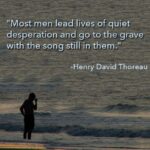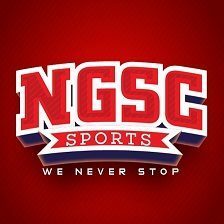This is to prove you were wrong about me, Nancy Cotton, the professor at Wake Forest who gave me a final grade of D in Freshman English Composition when I was 18 years old. You communicated with that D that I wasn’t a good writer and you were not impressed; in fact, you went further than that — you told me I was a bad writer, inept. That’s what a D means.
Had you not slapped that psychological haymaker across my face, I wouldn’t be here now writing when I don’t really feel like it, when it doesn’t feel like it’s worth the time, with so little on my mind that I think anyone wants to hear, with today’s work issues wearing out my brain. I’m here to tell you, Nancy, I kept at this writing thing because you said I had no talent and I still don’t like you stamped that verdict on me.
Forty-four years later, here I am, here I come, whether you know or not or even remember giving me that D. You took a swing. Now I’m swinging back. Insult a young person and they’ll never forget or forgive you.
I’m also here for Joker. I feel I’ve lost him as a friend because his team got embarrassingly blown out of the NBA playoffs and now he’s off to Serbia where I won’t see or hear about him for months and he may never win an NBA title which saddens me because he plays basketball with such artistry and humility. I’m here to tell you how much I’m going to miss watching him set picks, sling no-look passes, and back big guys down low and take them to a school called basketball. I’m here practicing because I know Joker got as great as he became by practicing and practicing shooting, dribbling, and passing.
I’m here doing my part to be good at something so maybe the one or two fans I have may enjoy reading this in the same way I enjoy watching the Serbian play hoops. For you, Joker, I’m here. For readers, too, if they’re inclined to ride on this trip with me.
I’m here also as a byproduct of the feelings generated in me reading a book these past few days titled Writing as A Path to Awakening: A Year to Becoming an Excellent Writer and Living and Awakened Life by Albert Flynn DeSilver.
If all I did was read the rest of my life books about how to write, how to approach the craft, and the mentality and attitude you need to keep typing words, I would be happy. I soak this stuff in. This is one of many I’ve read. The first – and best – book I’ve ever read about writing is On Writing Well by a Yale U. professor named William Zinsser. All about being clear, simple, and unpretentious – which I have taken as important guidance in my writing ever since.
This book by DeSilver grabbed me for its messages about just going for it when you write, not holding back (telling a professor for example you’re still hurt by the grade she gave you even though she’ll probably never read this). Get on with it, the author writes. Accept that this is why you’re on Earth, and be disciplined.
Write when you’re tired as I am now. Write when you have nothing to say, which is now. Write it all down anyway, every day, no matter who cares or knows. My favorite passage:
“Write when you don’t want to – that’s often when the most real and revelatory material surfaces. The practice of writing isn’t about wanting or not wanting to do it; it’s about doing the work you’ve been called to do, the work you are committed to do.”
This is my reason for being, to write right now. It’s a calling maybe like when a young man feels called to be a priest. Whether I want to write right now is irrelevant. The point is I must. I go forward, typing, and who the hell knows why other than it just is, and who the hell knows if anyone will read any of this, but none of this matters.
There is a darkness to writing. It’s time alone. For hours and days and months and years. You sit and type and don’t talk. People walk by and that’s it. Lives continue. You type. Dinner comes around. You type. Seasons change. You type.
The real question is how dark do you want to get? I am sad sometimes, but mostly happy. Content, actually, and content feels better than happy because it’s less emotionally jarring.
What is dark? Dark is tragic events. Dark is war. Dark is psychotic behavior. Dark is depression. Dark is people hurting other people. The author says writers need to get dark to uncover important insights.
“We must cut the metaphoric rope, free-fall to our death, and crawl our way out by going farther down into the black unknown. Although it’s contrary to our inclinations and common sense, down is where we find the opening. When things sometimes feel bleak and hopeless, that’s where we find the light.”
It’s true. When I write I feel the darkness and the light, bouncing back and forth like a ping pong ball. The fact that Joker’s no longer in the playoffs is a dark thing for me. A man who inspires me is not going to be playing basketball on TV for months so I have lost that emotionally uplifting lever. Where to turn? Caitlin Clark’s situation is kind of dark, too. She’s struggling in the WNBA after dominating college hoops. From darkness to light we ebb and flow every day of our lives. The author writes about writing edgy and unpredictably.
“It’s time to be edgy and alive. The moment has come to be creatively unpredictable. Time to wake up and write into your unique elemental body wildness to discover the wisdom of wildness within.”
Wild, huh? Not sure this qualifies, but I streaked in college several times one time wearing a Wonder Woman mask.
Not wild enough? I spraypainted the word Wednesday on my car, a UPS brown Chevy Impala, and for that my landlord evicted me.
How about this: There is nothing about the NBA playoffs that is intriguing in any way because Joker’s gone and he’s the most fascinating player and personality the league has ever seen. And the NFL is the most boring and least entertaining sport on television and the only reason it’s popular is because people like to gamble and drink before, during, and after games. The actual games are not entertaining; they’re tedious and full of interruptions.
The book has a bunch of meditation techniques writers can use to get in a calm mindset that enables them to tap into their creativity and free them up to just let go of their ideas on the page. He writes:
“Writing as a path to awakening invites you to go ahead – be wild, be bold, be brave. Be an example of intrepid daring. To be audacious means to redefine yourself as a person or courage, as a writer of boldness, as someone who is willing to show up with full vulnerability and presence.”
How’s this for vulnerable: In college I got a D in English Composition, Introduction to Theatre, Introduction to Psychology, and Introduction to Economics. In graduate school I got a 54 (or thereabouts) on an accounting exam.
In the working world I’ve been promoted only twice in 40 years. It gets more dismal. In one case I got demoted shortly after the promotion and in the other I was given the promotion just to appease me as they hired someone to be my boss.
Now you know. Even if you didn’t want to.
Don’t cringe. I’m fine. In my last semester as an MBA student I got five As – a perfect 4.0 – and scored the highest grade in a class of 49 on the final exam in a business strategy class.
This is all a simple way of revealing that I, like you, know exactly what it feels like to fail miserably and succeed marvelously.
“Telling your story is a participatory act,” the author writes. “It’s an act of courage. It means choosing to engage the conversation of your life with insights, perspective, and a little distance.”
The insights I gained from these highs and lows is that I didn’t stop trying when I fell flat and that led to success. There were times when I was devastated but I just kept going. A continuous effort led to better times. This is a life lesson of huge relevance to us all.
I think many writers, myself included, tend to think of what they write as a product such as an article targeted for publication in a magazine or online media site. The author dismisses that way of thinking. Writing is not a product. It’s all about an ongoing, constant, endless process of practicing, refining, and rethinking.
“The sooner we can wrap our mind around writing as a process – that is, an adventurous journey – instead of a product, the sooner we can get into the work of writing as an act of discovery. We can let go of perfectionism and surrender to the journey of failures that transform flowers of success as we step forward into process. Doing so, we connect with all that we have to share with the world, instead of getting stuck in the rut of self-doubt and judgment.”
I don’t know if what I’m writing here is connecting with you but I hope it is and trust that at least I am trying to reach you intellectually or psychologically. I don’t know and probably never will how this strikes you but that’s not in my control. All I can do is share and stop judging myself and maybe that’s enough.
As I reach the final sentences of this blog, I want to end with this whole notion of writing being fun, which it so often is, even this blog that started out rather bitterly and somberly. I got that out and it felt good and now there’s a feeling of relief and satisfaction that I fought through apathy and low hopes that this would be anything worth reading or writing. It has become, as it often does, enjoyable and that’s what the author of this book says is key.
“Writing should ultimately be fun and funny. Life is too short to take ourselves too seriously, and it’s definitely too short to get caught up in the struggles and anguish of the creative act.”
It’s worth repeating because it’s so important. Writing should be fun. But it should also be a commitment you make to yourself to just let go of inhibitions and not worry about what the reader may think because there is no way to control that. You are you. I am me. Let’s just do what we do. I write. I take it seriously. I write on days like today when I’d rather be watching TV or just lying around because I have made a pact with myself that I will be disciplined in working at this craft not just to humor myself but so that, maybe, others will benefit somehow in some way even though I may never know.
“Your success is directly proportionate to your level of devotion, practice, consistency, and persistence. Discipline has everything to do with service – to self, to others, to community and society, to higher purpose and divine inspiration. Our level of happiness depends on how much we give to others and how much kindness we express.”
Author Profile

-
Sammy Sportface, a sports blogger, galvanizes, inspires, and amuses The Baby Boomer Brotherhood. And you can learn about his vision and join this group's Facebook page here:
Sammy Sportface Has a Vision -- Check It Out
Sammy Sportface -- The Baby Boomer Brotherhood Blog -- Facebook Page
Latest entries
 BonusJune 16, 2024Invitation to My Friend, John Williams: Let’s Talk Again
BonusJune 16, 2024Invitation to My Friend, John Williams: Let’s Talk Again BonusJune 15, 2024Caitlin Clark’s Mental State: We Should All Be Concerned
BonusJune 15, 2024Caitlin Clark’s Mental State: We Should All Be Concerned BonusJune 14, 2024Unbeatable Theatre: U.S. Olympics Swimming Trials Start in Two Days
BonusJune 14, 2024Unbeatable Theatre: U.S. Olympics Swimming Trials Start in Two Days BasketballJune 13, 2024Wishing Jerry West Peace: A Troubled Terrific Life
BasketballJune 13, 2024Wishing Jerry West Peace: A Troubled Terrific Life





